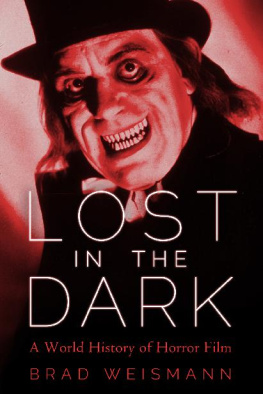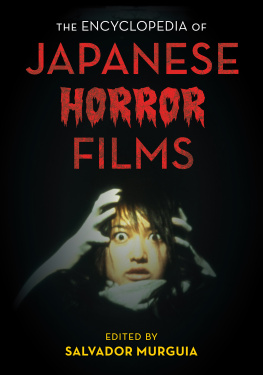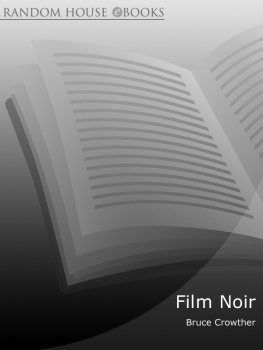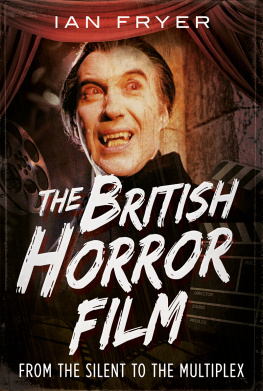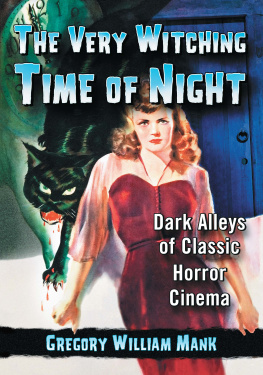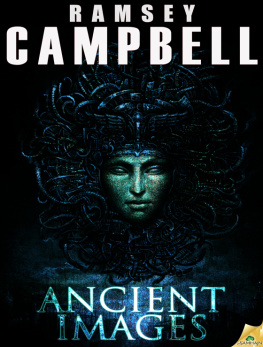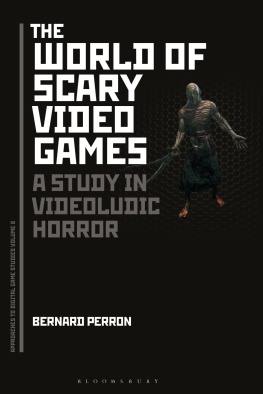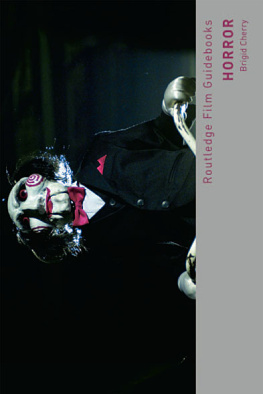LOST IN THE DARK
LOST
IN THE
DARK
A World History of Horror Film
BRAD WEISMANN
The University Press of Mississippi is the scholarly publishing agency of the Mississippi Institutions of Higher Learning: Alcorn State University, Delta State University, Jackson State University, Mississippi State University, Mississippi University for Women, Mississippi Valley State University, University of Mississippi, and University of Southern Mississippi.
www.upress.state.ms.us
Designed by Peter D. Halverson
The University Press of Mississippi is a member of the Association of University Presses.
Copyright 2021 by University Press of Mississippi
All rights reserved
Manufactured in the United States of America
First printing 2021
Library of Congress Cataloging-in-Publication Data
Names: Weismann, Brad, author.
Title: Lost in the dark: a world history of horror film / Brad Weismann.
Description: Jackson: University Press of Mississippi, 2021. | Includes bibliographical references and index.
Identifiers: LCCN 2020051850 (print) | LCCN 2020051851 (ebook) | ISBN 978-1-4968-3322-8 (hardback) | ISBN 978-1-4968-3321-1 (trade paperback) | ISBN 978-1-4968-3323-5 (epub) | ISBN 978-1-4968-3324-2 (epub) | ISBN 978-1-4968-3325-9 (pdf) | ISBN 978-1-4968-3326-6 (pdf)
Subjects: LCSH: Hammer Film Productions. | HorrorHistory and criticism. | Horror filmsHistory and criticism. | Monster filmsHistory and criticism.
Classification: LCC PN1995.9.H6 W418 2021 (print) | LCC PN1995.9.H6 (ebook) | DDC 791.43/6164dc23
LC record available at https://lccn.loc.gov/2020051850
LC ebook record available at https://lccn.loc.gov/2020051851
British Library Cataloging-in-Publication Data available
Dedication
To BONNIE
who aint fraid of no ghost
CONTENTS
Men fear Death as children fear to go in the dark; and as that natural fear in children is increased with tales, so is the other.
FRANCIS BACON
In particular, we must constantly be aware of [British] horrors disreputability, for this quality comprises an integral part of the genres working. It is a fundamental condition of [British] horrors existence that no one really takes it seriously; therein lies dispensation for its transgressions, its often very lucid uncoverings and explorations of structures and assumptions that otherwise would have remained hidden.
PETER HUTCHINGS , Hammer and Beyond: The British Horror Film
INTRODUCTION
HORROR FILM IS BIGGER THAN EVER. ITS BOTH WILDLY POPULAR AND critically esteemed. It is universal; it leaps over cultural barriers.
We need to be scared. We need to test ourselves, to blanch, scream, and clutch. We need to get through the fear and come out on the other side, blinking, but still in one piece.
Horror is rebellion. Horror is subversion. It questions our most casual and fundamental assumptions. It asserts that there is no safe hiding place. Using fear as a focal point, it bends reality into a misshapen but illuminating mass.
Horror is a universal guilty pleasure. As an experiment over the past year, at every social occasion and public interaction, I decided to bring up horror movies, casually, as quickly as I could. In every situation, it took only a moment for peoples eyes to light up as they began debating horror-film favorites, and giving me recommendations. Its in moviegoers blood.
When I was very young, I found myself curled up on the basement floor in front of the TV every Saturday night watching Creature Features . This was the local incarnation of Shock Theater the legendary syndicated package of fifty-two classic (and not-so-classic) horror films that my generation grew up on. My favorite reading material? Forrest J. Ackermans lovingly garish monthly magazine Famous Monsters of Filmland .
Later on, horror films helped me squirm closer to my dates in darkened theaters. When I reached what I laughingly refer to as adulthood, my interest in horror films, like that in comic books, model airplanes, and tetherball, waned.
But, to my surprise, as I continued to age, I found that my steady diet of grown-up culture stalled. I yearned for simpler, more visceral thrills. And, wouldnt you know, the horror films, comics, and fanzines our parents despised and forced us to smuggle like forbidden Soviet samizdat were now deemed high art themselves, and the formerly suspect delights of fright flicks drew me back.
The scholarly and popular writing on the history of the horror film, in whole or in parts, is vast and illuminating. Yet few seem to bridge that gap between esoteric study and fanboy fervency. This book aims to provide a solid and comprehensive general introduction to the student, a guide for the curious, and a rousing good time for the casual reader.
My working definition of horror is pretty straightforward. For me, its anything that deals with our darker impulseswhether fear, hate, dread, despair, bloodlust, or evil. Underneath our civilized veneers, there are howling, terrified animals that, under the right circumstances, can feel as though theyre in the grip of something that is going to kill them. And eat them. The live-or-die thrill that results is the adrenaline rush the horror junkie is after.
Horror has two essential elementsit deals with factors outside normal experience (within us and/or outside of us), and it is threatening. This makes horror a kind of perverse anti-faith. THERES SOMETHING THERE, AND ITS AFTER US! Take away the supernatural element and you have the crime film, the thriller, the dark psychological drama. Take away the malevolent element, and you have the fantasy film.
The best horror films want to rip off the tops of our heads and make us peer within at the suppressed impulses we harbor. They want us to contemplate a universe in which death, decay, and corruption have a role. The horror genre, despite limitations and clichs, allows us to say things about life we think or believe that we rarely articulate: that innocence is doomed, that retribution is sure, that death is nigh. Sometimes we need to inundate ourselves with the abnormal in order to reconceive what constitutes normality. Through horror, we can safely ponder chaos and dissolution. Through it, we integrate our darknesses into ourselves. We need the catharsis.
In that horror film tells us that everything is not perfect, it is an enemy of repressive societies, political tyrants, and bourgeois authorities. Consequently, it is frequently censored and/or banned. But societies need horror films, too. Through them, together we can look at the monsters and ghosts that populate our collective consciousness. Different eras and cultures produce horror cinema that is unique and appropriate to their psychic needs. This text examines the major facets of this ongoing worldwide phenomenon.
Sometimes horror films offer us redemption, and sometimes the gate clangs shut at the end, trapping us in madness and doom. We challenge ourselves with horror films, lost in the dark for a time. Through them we face the unfaceable and live through it, blinking, happy, and alive again, outside the theater.
LOST IN THE DARK
Chapter One
HORROR BEFORE FILM
HORROR IS AS OLD AS DEATH AND THE UNKNOWN. AS CIVILIZED AS WE may pretend to be, we are instantly vulnerable to the uncontrollable impulse of fear.



